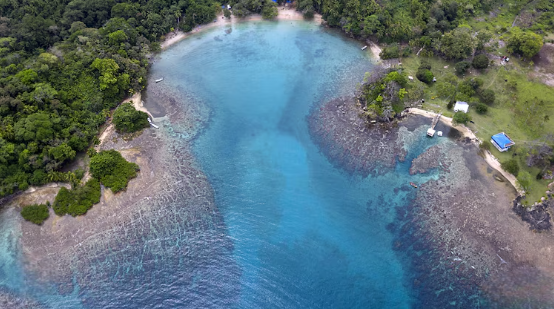Lakshadweep, renowned for its stunning atolls, vibrant reefs, and serene inhabited islands, is currently facing an unprecedented crisis as widespread coral bleaching grips the region due to marine heatwaves.
According to the ICAR-Central Marine Fisheries Research Institute, a significant bleaching event is underway in the Lakshadweep Sea. Marine heatwaves, characterized by prolonged periods of unusually high ocean temperatures, have pushed the Degree Heating Week (DHW) indicator above 4 degrees Celsius-weeks, indicating a high risk of coral bleaching.
Coral bleaching occurs when warm water temperatures cause corals to expel the symbiotic algae living within their tissues, leaving behind their white skeletons. While bleached corals are not dead, they are vulnerable to starvation and disease.
Since October 27, 2023, the Lakshadweep Sea has experienced temperatures about 1 degree Celsius higher than usual, with changes in ocean currents exacerbating the situation. This event surpasses previous instances in 1998, 2010, and 2015, underscoring the severity of the crisis.
The impacts of marine heatwaves and coral bleaching extend beyond Lakshadweep, posing threats to coastal communities’ livelihoods, tourism, fisheries, and critical marine habitats like seagrass meadows. Similar to corals, seagrass meadows and kelp forests are suffering from impaired photosynthesis, reduced growth, and reproductive challenges due to the heatwaves.
Furthermore, the Lakshadweep Islands face a grim future due to rising sea levels. A study by IIT Kharagpur and the Department of Science & Technology predicts a concerning sea level rise of 0.4-0.9 mm/year for the archipelago, leading to coastal erosion, land loss, and hindered coral formation.
The Indian Ocean basin, known for its accelerated warming, is expected to experience further temperature increases during 2020-2100, resulting in more severe weather events, prolonged marine heatwaves, and extreme Indian Ocean Dipole events affecting the monsoon and cyclone patterns.
Given these alarming predictions, urgent action is needed to mitigate the impacts of marine heatwaves and coral bleaching. Enhancing understanding of marine heatwaves and species resilience can bolster the resilience of fisheries and marine ecosystems in the face of climate change.















































